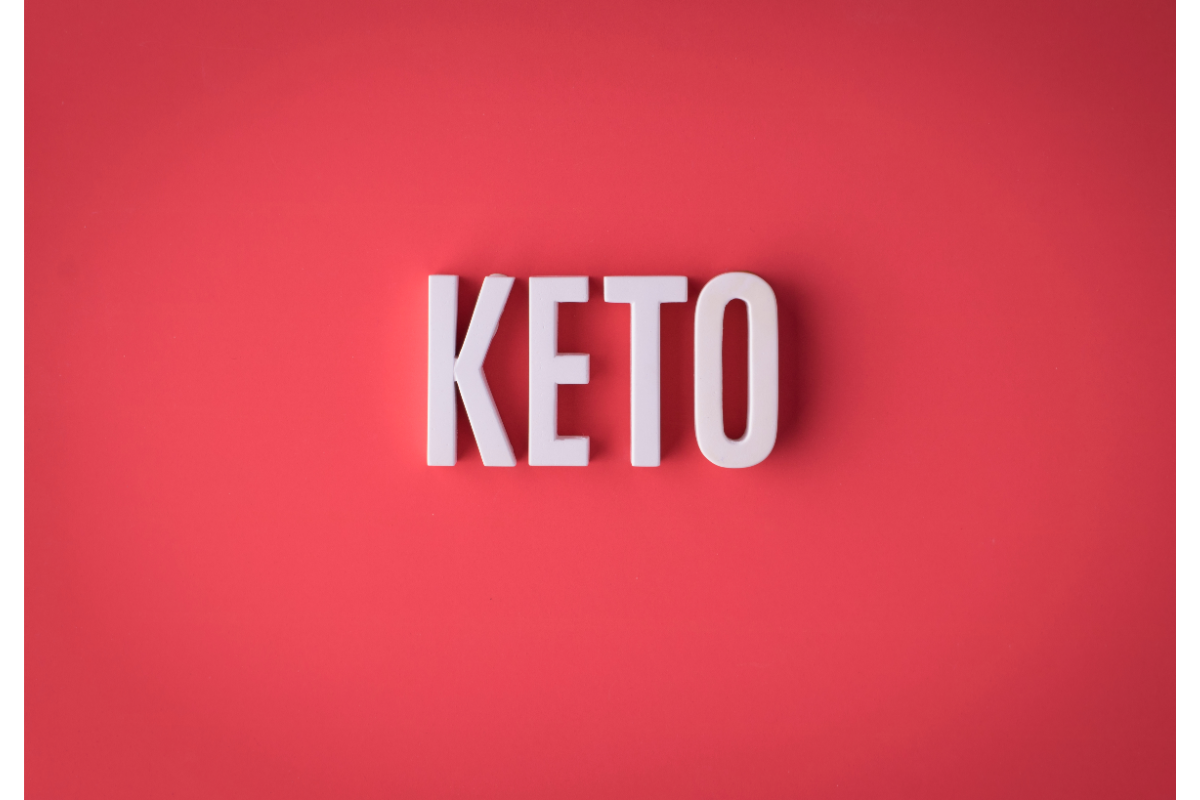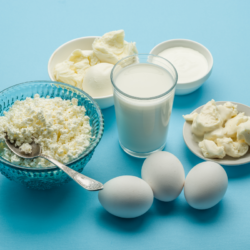In the world of nutrition and well-being, the Keto diet has caused quite a stir. Why is it so popular? What makes this diet so special? And what are the benefits of the Keto diet? This article sets out to enlighten you.
What are the benefits of the Keto diet?
One of the main reasons for the popularity of the Keto diet is its ability to facilitate effective weight loss. You’re probably wondering: “How does it work? In simple terms, this diet forces your body to draw on its fat reserves to produce energy, due to the drastic reduction in carbohydrate intake. This process, known as ketosis, is at the heart of the Keto diet and can lead to significant weight loss.
Ketosis encourages your body to become a fat-burning machine. In this way, you convert your fat reserves into fuel, promoting faster and more effective weight loss compared with other diets.
Blood sugar control
Keto diet is not only an ally for those looking to lose weight, it can also be beneficial for people with type 2 diabetes. This diet has the potential to reduce blood glucose levels. But how is this possible? The answer lies in carbohydrate restriction. By eating fewer carbohydrates, your body does not experience the frequent insulin spikes that occur after carbohydrate-rich meals.
This means that the Keto diet can help keep your blood sugar levels more stable, which is essential for managing diabetes. However, it’s important to note that any change in diet for people with diabetes should be carried out under medical supervision.
Improved cardiovascular health
One of the lesser-known but nonetheless important benefits of the Keto diet is its potential positive impact on heart health. Several studies have shown a reduction in the risk factors for heart disease in people following a ketogenic diet.
The explanation may lie in the fact that the Keto diet encourages the consumption of healthy fats, such as those found in olive oil and avocado, which are known to have beneficial effects on heart health. What’s more, the weight loss it facilitates can help to reduce blood pressure and cholesterol levels, two major factors in the development of cardiovascular disease.
Unravelling the Keto diet
The Keto diet is a mystery to many, shrouded in myth and conjecture. It’s time to demystify it. Get ready to get to the heart of the matter and “dissect the Keto diet” to understand all the ins and outs.
What are the basic principles of the Keto diet?
The philosophy behind the Keto diet can be summed up in three words: fats, proteins and carbohydrates. The composition of your plate should reflect a high fat intake, a moderate amount of protein and a low carbohydrate content.
When we talk about fat, we’re not referring to just any type of fat. Healthy fats are the key word here, and they can be found in foods such as olive oil, avocado, oily fish like salmon and sardines. These unsaturated fats can help to increase levels of good cholesterol (HDL) and reduce the risk of heart disease.
What can you eat on a Keto diet?
Meals on a Keto diet are not monotonous or boring. On the contrary, they are colourful, tasty and full of variety. Protein in the form of meat, fish and eggs, cheese for indulgence, nuts for crunch, and of course a wide variety of low-carbohydrate vegetables to fill your plate with fibre and vitamins.
However, the Keto diet requires you to avoid certain foods, especially those rich in carbohydrates. Cereals, potatoes, sugar and most fruit are generally excluded from the menu. The aim is to reduce your carbohydrate intake sufficiently for your body to enter ketosis, a state in which it burns fat for energy.
What should I drink on the Keto diet?
And what about hydration, you may ask? Drinks can also play a role in maintaining ketosis. Water remains your best ally, whether still or carbonated. Tea and coffee, with no added sugar, are also excellent choices for staying hydrated throughout the day.
However, be careful with alcohol and sugary drinks. Not only can they interrupt ketosis, but they can also add a large amount of empty calories to your daily calorie intake. Remember that the Keto diet is all about burning fat, and these drinks could well interfere with that process.
Understanding ketosis
Ketosis is the heart of the Ketogenic diet. It’s the superpower that makes the whole machine work. But what exactly is ketosis? We’re now going to enter the fascinating world of ketosis and learn how to understand it in depth. Get ready for an exciting scientific adventure.
What is ketosis?
Ketosis is a metabolic state in which your body uses fat as its main source of energy due to a reduced intake of carbohydrates. This is the main objective of the Ketogenic diet.
How do you achieve ketosis?
To achieve ketosis, you need to reduce your carbohydrate intake considerably and increase your fat intake. This generally takes a few days.
How do I know if I’m in ketosis?
There are several signs that you are in ketosis, such as weight loss, a feeling of satiety, increased energy or fruity-smelling breath.
Food supplements to achieve ketosis
Food supplements can play an essential role in promoting ketosis and optimising the results of the Keto diet. Among these supplements, Biocyte‘s KETO range, in collaboration with Marion Bartoli, offers a complete solution to facilitate entry into ketosis and maximise the benefits of this diet.
The metabolism generally requires a minimum of three days to enter ketosis, on a strict and adapted diet. However, for those who wish to achieve ketosis more quickly, the food supplements in Biocyte ‘s KETO range can be a great help.
Biocyte ‘s KETO range includes a variety of products, such as the KETO Burner kETO Cellulite, KETO Base Veggie, KETO Slim Nuit and Keto Draineur, Keto Base, Keto Cla Max, Keto Booster, Keto Slim Max and Keto Bar. Each of these supplements is specifically formulated to support different aspects of the Keto diet.
By taking these supplements, you can activate ketogenesis more quickly, meaning your body will start to produce ketones faster, allowing you to enter ketosis more quickly. This can be particularly beneficial if you’re looking for quick results or if you’re struggling to achieve ketosis through diet alone.
In addition, supplements from the KETO range can help reduce hunger and cravings, which are often a challenge when transitioning to the Keto diet. These supplements are formulated to help you feel fuller for longer, making it easier to stick to the diet and control your calorie intake.
Another benefit of these supplements is their ability to promote keto-adaptation. When you switch from carbohydrate metabolism to fat metabolism, your body needs time to adapt to this new energy source. Biocyte ‘s KETO supplements can facilitate this transition by providing essential nutrients and active ingredients that support keto-adaptation, thus reducing any undesirable effects associated with this transition phase.
Finally, these supplements can help avoid the yo-yo effect and weight regain after following the Keto diet. By maintaining adequate supplementation, you can support your metabolism and maintain the benefits of the diet even after it has been discontinued.
FAQ
- Is the Keto diet safe for everyone?
It is recommended that you consult a health professional before starting the Keto diet. Especially if you have any underlying health problems.
- How long does it take to reach ketosis?
It generally takes between 2 and 7 days to reach ketosis. This depends on carbohydrate intake and individual metabolism.
- Does the ketogenic diet cause any side effects?
Some people may experience what is known as “ketogenic flu” at first. This includes symptoms such as fatigue, headaches and irritability.
- How long should I stay on the ketogenic diet?
This depends on your individual weight loss and health goals. It is best to discuss the duration of the diet with a healthcare professional.
- Is the Keto diet good for sport?
It’s important to note that the adaptation phase could affect performance.
- What foods should I avoid on the Keto diet?
Cereals, carbohydrate-rich fruit, legumes, sugar and alcohol.
Sources:
- https://www.ncbi.nlm.nih.gov/pmc/articles/PMC8153354/
- https://www.ncbi.nlm.nih.gov/pmc/articles/PMC8322232/





